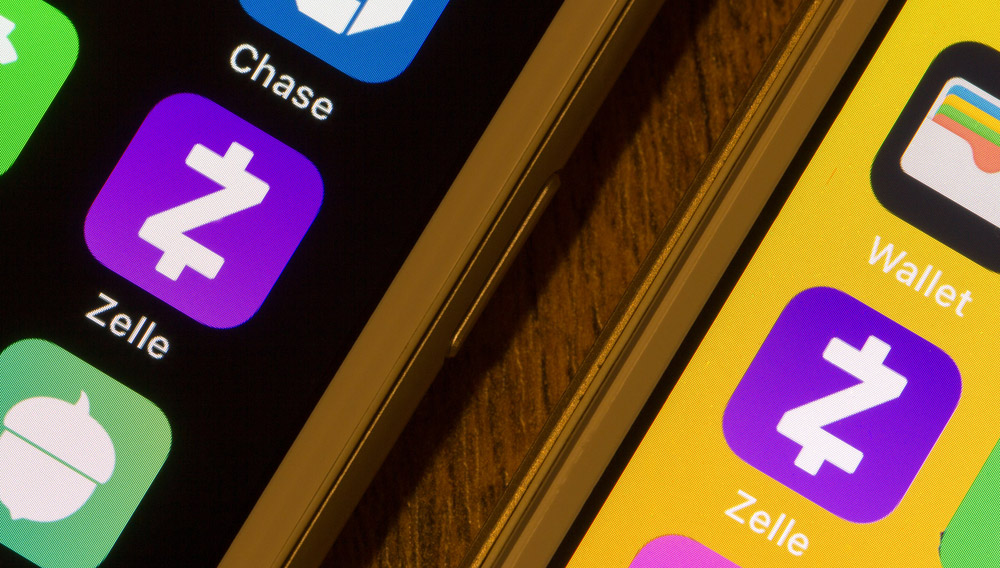Chase will start blocking Zelle payments to social media accounts to cut down on fraud
The payment service lacks purchase protection, which opens customers to a significant amount of fraud.

JPMorgan Chase Bank (Chase) customers will soon have an added layer of protection in place when it comes to Zelle payments. Starting March 23rd, the banking company will be delaying, declining or blocking Zelle payments that have been identified as originating from social media contacts, according to a Bleeping Computer report.
A digital payment service tied to multiple banking institutions, Zelle is used to let customers easily transfer money between bank accounts. It doesn’t require cash or checks and allows for nearly instant transfers, but also lacks purchase protection, leaving Chase customers open to a significant amount of online scams and fraud.
Reports filed by Chase customers between June and December of 2024 show that of those who filed claims about Zelle or wire transfers, 50% of all reported scams originated on social media. An update to Chase’s user policy states specifically that Zelle shouldn’t be used to make purchases from any retailers or merchants “on or through social media or social media marketplaces or messaging apps… We’ll decline those transactions because Zelle is meant to pay friends, family and other trusted recipients you know, not for others you meet on social media.”
Chase may request information when setting up a Zelle payment or when adding a recipient that could include the purpose of a payment, the method of contact with a recipient, or other additional details that Chase deems appropriate to assess whether the payment may have an elevated fraud risk or if the payment is illegal, ineligible or improper.
The amount of fraud committed through Zelle has exceeded $870 million, according to a lawsuit filled by the U.S. Consumer Financial Protection Bureau (CFPB) against Early Warning Services (which operates Zelle) and three of its owner banks (JPMorgan Chase, Wells Fargo, Bank of America) in December 2024.
According to the lawsuit, the Zelle service was rushed to market in order to compete with other payment apps and failed to adequately implement consumer safeguards, which resulted in thousands of Zelle and bank customers being defrauded of millions of dollars. Additionally, the suit claims that affected customers were denied assistance and told to contact the scammers in order to recover their funds. Meanwhile, the banks failed to investigate complaints or provide victims with legally required reimbursements.
How to avoid getting scammed using Zelle
Because Zelle doesn't offer a "refund" option, or any purchase protection, it's not the best way to make payment to people you don't know. Stick to family and friends for Zelle payments and keep these tips in mind:
Sign up to get the BEST of Tom's Guide direct to your inbox.
Get instant access to breaking news, the hottest reviews, great deals and helpful tips.
Online scammers will often try to get you to move to a different messaging platform to complete a transaction — whether it be selling an item or buying one. When it comes time to pay or get paid, you should avoid using Venmo, Zelle, Cash App or other payment methods as they don’t offer the same protections that Facebook Checkout or PayPal do.
If you're buying or selling an item, you should never accept payments in the form of gift cards, as this is a clear sign you’re dealing with a scam. Likewise, if someone asks you to pay money in advance to hold an item, you’re also dealing with a scam.
Also, never give out your username or password over the phone to anyone who has called — that's a common phishing tactic that's been used in a Zelle scam to steal banking credentials and money.
More from Tom's Guide

Amber Bouman is the senior security editor at Tom's Guide where she writes about antivirus software, home security, identity theft and more. She has long had an interest in personal security, both online and off, and also has an appreciation for martial arts and edged weapons. With over two decades of experience working in tech journalism, Amber has written for a number of publications including PC World, Maximum PC, Tech Hive, and Engadget covering everything from smartphones to smart breast pumps.
You must confirm your public display name before commenting
Please logout and then login again, you will then be prompted to enter your display name.
